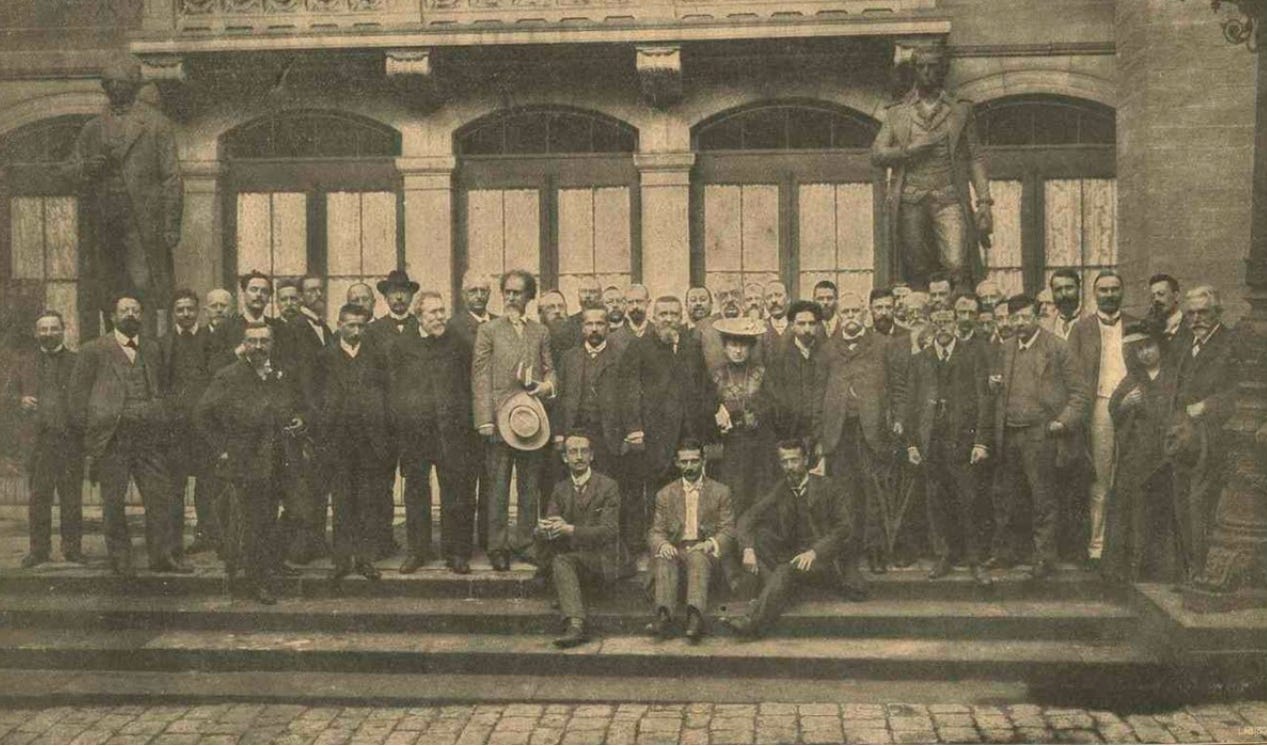The Second-International Socialists of the Late 1800s Atop Mt. Nebo: A Sketch of How They (More-or-Less) Viewed the World
Looking ahead to when, after the midterm, I get to humanity’s true watershed boundary-crossing of 1870: how I now think I will present things, summing up the history of human economic growth to that moment; setting forth the optimism of the Second International’s socialists; & posing the problem of how thereafter it all went so wrong…
Here is where I am now, but it is not so much what they expressly believed and wrote, but what they should have given their historical situation…
Since at least the spread of agriculture up to 1770, human society everywhere was caught in the Malthusian Trap.
Humanity’s ensorcellment by the Devil of Thomas Robert Malthus meant that between 30% and 80% of the resources of the non-élite had to go to getting bare necessities—2000 calories a day plus essential nutrients, enough clothing and heating that you were not often desperately cold, enough shelter that you were not often desperately wet—so that human population could reproduce itself with a very small extra margin on average to support slow population growth.
In such a world, the only way (other than finding yourself on the conquest frontier of an expanding aggressive civilization, and thus resource-rich) to plausibly get enough for yourself and your family was to join the gang that was your society’s élite that took one-third of the crop and the crafts by fraud and force.
Become the Man, either as one of their bosses, one of their tame accountant-propagandist-bureaucrats, or one of the thugs-with-spears who worked for them: Talleyrand claimed to Napoleon that you could not sit on bayonets, but as long as your tame accountant-propagandist-bureaucrats can help you successfully convince the thugs-with-spears that they gain more by remaining part of your élite coalition rather than joining another, he was very wrong.
How about devoting your and your fellows’ brains to becoming much more productive? As a rule, that just made you a very soft and attractive target indeed for the thugs-with-spears.
To first order, therefore, we characterize all past human agricultural societies as societies of domination: in them the principal focus of those who were in a position to direct the energy of humanity as an anthology intelligence was to systematize the taking of one-third of what the producers made, and to justify this taking to themselves and their victims by some version of “if God did not intend them to be sheared, he should not have made them sheep”.
But in 1870 and after technological progress achieved critical mass.
Thereafter human technological prowess doubled every generation.
That meant a truly human world—one that was rapidly solving the problem of baking a sufficiently large economic pie so that everyone could have enough. And after the problem of producing enough for all had been solved, the problems of slicing and tasting it—equitably distributing and properly utilizing our wealth—should be easy to make and live in.
Yes, there was still the holdover legacy of the past societies-of-domination: a way had to be found to convince the heirs of past élites that in the forthcoming societies of abundance playing the old game was not worth the candle, or at least to move the heirs of past élites out of the way.
Yes, there was the brand-new problem of all of the revolutions of rising expectations: when your conception of material-consumption utopia rises from three hot meat meals a week with ample mead, feasting in Roger’s Stag-Hall on the coast of the Baltic Sea, to low-cost low-latency gigabit internet—well, ludicrous as it would seem to all past human generations, what people regard as enough may recede almost as fast as material prosperity advances.
But these, Freddie from Barmen might have said, were mere speedbumps on the superhighway leading us to utopia.
The lived experience of existing in a Steampower Society would, Friedrich Engels thought, rapidly make it blindingly obvious to everyone that: (a) collectively, as a species-being, as an anthology intelligence, the knowledge base of human society was a mighty and rapidly advancing godlike force indeed; (b) but individually none of us was very special, or essential, for we all put on our identical blue denim overalls one leg at a time; © administration involved the boring adding, subtracting, multiplying, and dividing of numbers, the issuing of receipts, and the mind-numbing finding of errors in double-entry systems; (d) all sane people would rather be making something in company with their fellows rather than being a low-level accounting microprocessor alone.
Hence (e) we would all realize that we should (i) rotate through the paper-pushing jobs that were now the administration of things rather than the domination of men, (ii) share everything equally, (iii) wear our identical blue denim overalls, (iv) call one another “comrade”, and (v) live happily ever after in the abundance of the free society of associated producers.
This would happen inevitably, with only minor “pro-slavery rebellion” resistances.
This would happen just as the lived experience of living in a post-feudal commercial society had made it blindingly obvious that all were created equal endowed with inalienable rights to life, liberty, and the pursuit of happiness through property and the voluntary making of contracts—including that very big contract that was the social contract—and so triggered the earlier round of liberal-democratic revolutions.
What do you all think? Is this the right way to present it?

